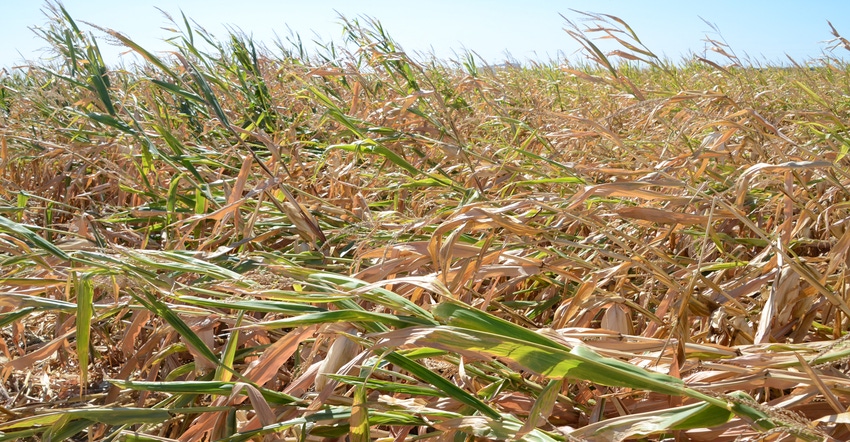September 30, 2020

What happens if you combine precision crop data with an insurance orientation? The result could be a system that compensates farmers for losses as they happen with greater precision and efficiency.
That’s the goal behind a new partnership announced recently between precision ag tech firm Farmers Edge and reinsurer Munich Re. The firms are working to create data-driven parametric weather insurance solutions.
“Parametric insurance is something where you need to have a parameter, and it doesn’t matter what parameter,” says Elisabete Michel, Munich Re. For example, if you have a restaurant with outdoor seating and rain can impact income, it’s possible to structure a parametric insurance program that pays out if there’s too much rain. That kind of policy would be built around data concerning average rainfall and payout if rains are excessive.
The key is the data set used, and that’s the working background for this new partnership for agriculture. Munich Re is a reinsurer that provides support to retail insurance companies. Offering a parametric product for agriculture is a new line of business.
Michel explains that the relationship with Farmers Edge is focused on data. The Canada-based precision ag firm has precision information provided by satellites and local weather stations, brought together by proprietary analysis tools.
The initial work in the partnership will be with canola in Canada, and the partners are evaluating crop models. “All models are constructed for a certain region, and we have seen in Canada that there is a difference between regions — canola in the north versus central and south,” Michel says. “They have to be assessed on their own and each program structured on its own. Then we will launch in Canada.”
Parametric insurance isn’t new to agriculture. Munich Re has written programs for major corporations to cover weather or other impacts to business based on external parameters. This new partnership could bring this same level of insurance choice to individual farmers.
Modeling a crop
Combining artificial intelligence-based crop modeling with an insurance product offers farmers new options to protect income. “It became clear as we built out the platform and we’re modeling all these things that are happening in the field, there was a potential here,” says Wade Barnes, founder and CEO, Farmers Edge.
He explains that farmers in Canada have access to crop insurance for losses like hail, but he saw other perils in canola that can be predicted with weather modeling and richer data available to Farmers Edge customers. “When you see a canola field of bright yellow colors, if you get 10 days of heat, you can drop that yield from 50 bushels down to 30 bushels — but there is no [payment] trigger, no value for that,” he says.
With this partnership, there will be a parametric product that can monitor the weather, note the rainfall, monitor temperature and other factors impacting a field, and model that out. “We know when the crop was planted, and we know when the crop is in a vulnerable stage, and we can match that to the weather,” Barnes says.
Insuring beyond the basics
Barnes notes that many Farmers Edge employees are farmers themselves, and they realize there’s an opportunity if a farmer can buy insurance against these profit-impacting issues.
“We talked to reinsurers and explained that we have all these farmers and we know when they planted, and we have weather stations on the farm and cropping models. No one else has that,” he says.
Barnes is quick to note that Farmers Edge is not an insurance company but can be the “connecting tissue” for the field, the farmer and the insurance provider. But he adds that this can also be a business builder for his company. “To get access to this type of insurance, the farmer will need Farmers Edge on the farm,” he says.
Barnes says weather-based payouts for measured crop losses aren’t a new idea. Early attempts were hindered by a lack of precision in weather data and solid crop modeling insight. “We have weather stations on customer farms, and if it’s a bigger farm, we put more stations out — so the chances of having a mistake are really low,” he adds.
He recalls an early frost near Chicago in 2020 which was not normal, and he could go in and identify where the frost was. “We could see where the frost nipped a field and where it didn’t; we have the ability to get that granular,” Barnes says.
Insurance payouts based on data may become the norm as more precision information becomes available. While this partnership is starting with canola in Canada, Barnes sees it expanding to other crops in 2021 and beyond.
About the Author(s)
You May Also Like






